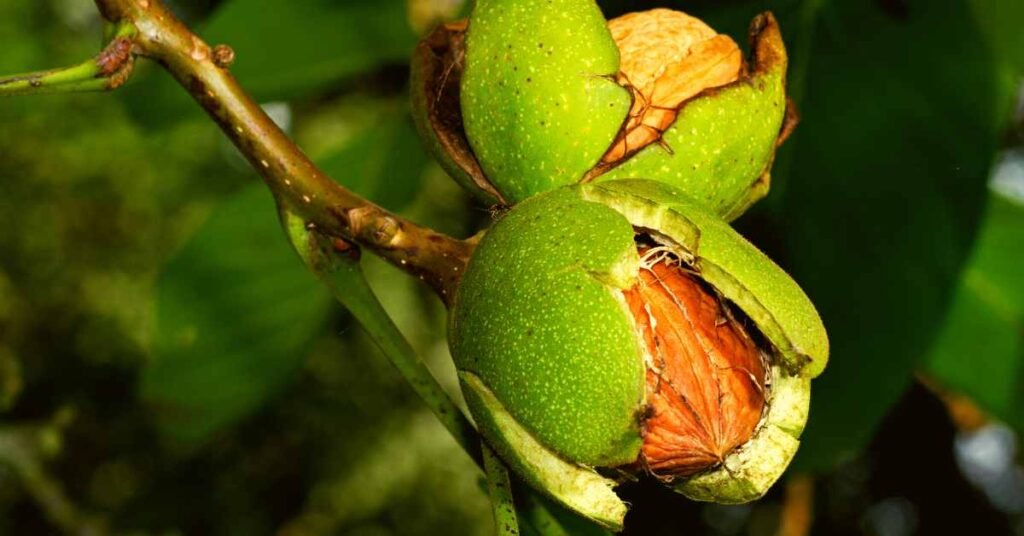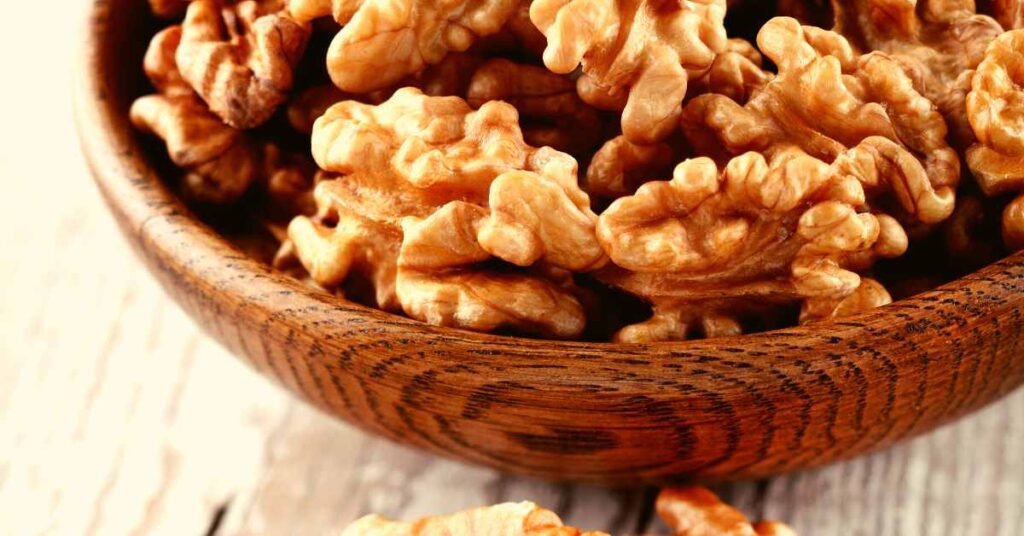Walnut kernel tea is a hidden gem, offering a unique blend of flavors and a plethora of health benefits.
Originating from the Juglans regia tree, commonly known as the English or Persian walnut, this tea has been cherished for centuries for its rich taste and medicinal properties.
In this article, we will explore the properties, benefits, origin, and various uses of walnut kernel tea.
Walnut Tree and Origin

The English walnut tree, native to the regions stretching from the Balkans to the Himalayas, has been cultivated for its nuts for thousands of years.
The tree’s kernels are not only a popular culinary ingredient but have also been used in traditional medicine across various cultures.
Walnut Kernel Tea: Properties and Preparation
Walnut kernel tea is made by infusing crushed or chopped walnut kernels in hot water.
The tea has a distinctive earthy and nutty flavor, providing a warm and comforting beverage.
The preparation involves steeping the kernels for around 10-15 minutes, allowing the water to absorb the beneficial compounds present in the nuts.
Properties of Walnut Kernel Tea
Rich in Antioxidants:
Walnut kernel tea is a powerhouse of antioxidants, including polyphenols and flavonoids. These compounds help neutralize free radicals in the body, reducing oxidative stress and promoting overall health.
Omega-3 Fatty Acids:
Walnuts are renowned for their high omega-3 fatty acid content, particularly alpha-linolenic acid (ALA). Consuming walnut kernel tea regularly can contribute to heart health, as omega-3 fatty acids are known for their cardiovascular benefits.
Vitamins and Minerals:
Walnut kernel tea is a natural source of essential vitamins and minerals such as vitamin E, B vitamins, magnesium, and potassium. These nutrients play a crucial role in supporting various bodily functions, including energy production and immune system health.
Anti-Inflammatory Properties:
The tea possesses anti-inflammatory properties, aiding in the reduction of inflammation throughout the body. This makes it a valuable beverage for individuals dealing with conditions related to inflammation, such as arthritis.
Benefits of Walnut Kernel Tea

Heart Health:
The omega-3 fatty acids present in walnut kernel tea contribute to cardiovascular health by promoting healthy cholesterol levels and reducing the risk of heart disease. Regular consumption may also help maintain blood vessel elasticity.
Brain Function:
The omega-3 fatty acids and antioxidants in walnut kernel tea are beneficial for cognitive function. They may support brain health, potentially reducing the risk of age-related cognitive decline and enhancing memory.
Weight Management:
Despite being calorie-dense, the healthy fats and fiber in walnuts can contribute to a feeling of satiety. Drinking walnut kernel tea as part of a balanced diet may aid in weight management by promoting a sense of fullness.
Skin and Hair Health:
The vitamins and antioxidants in walnut kernel tea play a role in promoting healthy skin and hair. Regular consumption may contribute to a clearer complexion and stronger, shinier hair.
Diabetes Management:
Some studies suggest that walnut consumption may help improve insulin sensitivity, making walnut kernel tea a potential ally in diabetes management. However, individuals with diabetes should consult with their healthcare provider before making significant dietary changes.
Uses of Walnut Kernel Tea

Culinary Applications:
Aside from being enjoyed as a standalone beverage, walnut kernel tea can be used as a flavorful ingredient in cooking and baking. It can add a unique nutty essence to soups, stews, and desserts, enhancing both taste and nutritional value.
Topical Applications:
Walnut kernel tea can be cooled and used topically as a hair rinse or facial toner. The antioxidants and vitamins in the tea may contribute to healthier hair and skin when applied externally.
Medicinal Purposes:
In traditional medicine, walnut kernel tea has been used to alleviate symptoms of various conditions, including digestive issues, inflammation, and respiratory problems. While not a substitute for professional medical advice, incorporating this tea into a well-balanced lifestyle may provide supplementary benefits.
Final Word
Walnut kernel tea is a delightful and versatile beverage that goes beyond its rich flavor.
With a host of health benefits stemming from its antioxidant-rich composition, omega-3 fatty acids, and essential nutrients, this tea has earned its place among the diverse world of herbal infusions.
Whether enjoyed for its earthy taste or embraced for its potential health perks, walnut kernel tea is a delightful addition to any tea enthusiast’s repertoire.
So, brew a cup, savor the robust flavors, and embrace the wholesome goodness of walnut kernel tea.
MEDICAL DISCLAIMER
Itsnevernotteatime.com cannot and does not contain medical/health advice. The medical/health information is provided for general and educational purposes only and is not a substitute for professional advice.




